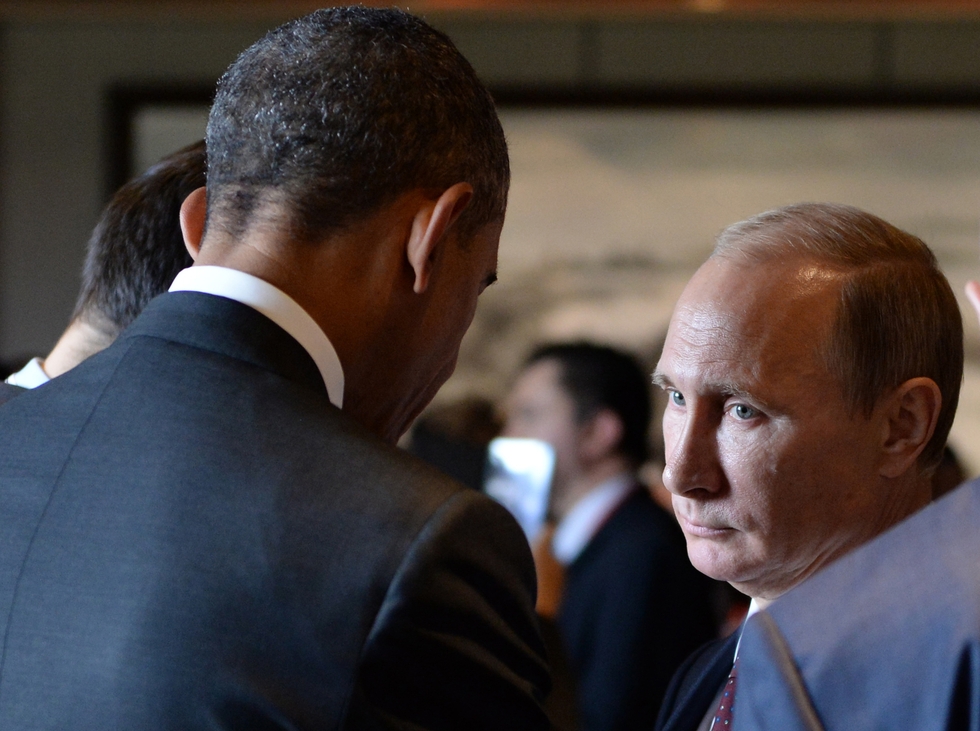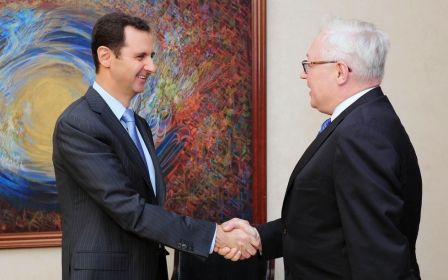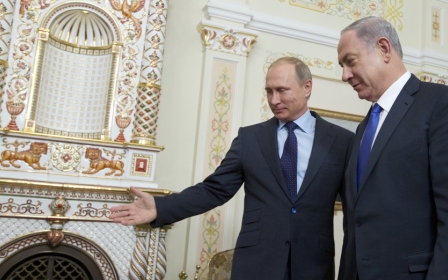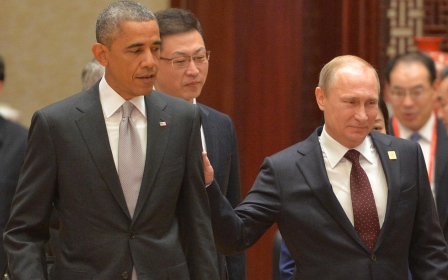Putin, Obama to meet to discuss Syria

WASHINGTON - US President Barack Obama on Thursday accepted an invitation to meet Russian counterpart Vladimir Putin, as a drive to revive efforts to resolve the Syrian conflict kicked into higher gear.
The announcement that Putin and Obama will hold talks at the United Nations in New York on Monday comes amid an apparent shift on Syrian President Bashar al-Assad's potential role in any deal to end the four-year war that has killed 250,000 people.
White House Press Secretary Josh Earnest said the meeting would determine “whether or not they’re willing to at least consider President Obama’s advice when it comes to reinforcing their military support for the Assad regime”.
US Defence Secretary Ashton Carter also said Moscow and Washington could find ways to co-operate in the crisis.
Turkish President Recep Tayyip Erdogan, a fierce Assad critic, suggested for the first time that the Syrian president could play a part in a future political transition.
But "nobody envisages a future with Assad in Syria," Erdogan cautioned.
In a sign that European thinking may also be changing, German Chancellor Angela Merkel said "we have to speak with many actors, this includes Assad, but others as well".
In a part of an interview with CBS talk show host Charlie Rose which aired on Thursday, Putin was asked if the Russian military intervention in Syria was designed to "rescue" Assad, and Putin replied: "Well, you're right."
"And it's my deep belief that any actions to the contrary - in order to destroy the legitimate government - will create a situation which you can witness now in the other countries of the region or in other regions, for instance in Libya, where all the state institutions are disintegrated," he said.
"We see a similar situation in Iraq," he added.
"And there is no other solution to the Syrian crisis than strengthening the effective government structures and rendering them help in fighting terrorism, but at the same time urging them to engage in positive dialogue with the rational opposition and conduct reform."
Also on Thursday, Russia sparked fresh alarm by announcing it would carry out naval exercises in the eastern Mediterranean this month and in October.
'Gasoline on the fire'
At the Pentagon, Carter said if Russia were to fight the Islamic State (IS) while also pursuing a political solution, and not just "indiscriminately" attack Assad foes, the United States and Moscow might find ways of working together.
"On a course like that, it is possible that we could find areas of cooperation," Carter said.
"But if it's a matter of pouring gasoline on the fire on the civil war in Syria, that is certainly not productive."
French Defence Minister Jean-Yves Le Drian called on Moscow to justify its "very significant" buildup in Syria and said if its intention was "to protect" Assad, it should say so.
European leaders, faced with the worst migrant crisis since World War II, have called for a "renewed UN-led international effort" to end a war that has forced 12 million people from their homes.
The tensions over Syria and Ukraine have palpably strained ties between Russia and the US. And in 2013, Obama cancelled a meeting with Putin after his country gave shelter to Edward Snowden, a former US intelligence contractor who leaked intelligence information.
However, while Russia and the West have spent months trading barbs over the Syria conflict, the flood of refugees on Europe's doorstep and the threat posed by the IS group have given new urgency to ending the chaos.
Suspicious intent?
The foreign ministers of France, Britain and Germany - as well as EU foreign affairs chief Federica Mogherini - held discussions on Syria in Paris on Thursday.
Germany's Frank-Walter Steinmeier said as he arrived that it was too early to raise the question of whether Assad should be involved in peace talks.
"There is a need to stop the fighting in the region," Steinmeier said.
"Therefore we have to find an approach ... to bridge the different positions of the actors in the region. Tonight we are preparing our common European position."
NATO Secretary-General Jens Stoltenberg urged Russia to make its intentions in Syria clear - and said they should assist in US-led strikes on IS fighters.
"The first step now is to sit down with the United States and to make clear what are (Russia's) intentions ... and to try to cooperate and give a constructive contribution to the efforts led by the United States to fight ISIL," he told AFP, using another acronym for IS.
Syrian officials have said Russia is already helping their fight against IS, which has seized large parts of its territory.
The Syrian military for the first time on Wednesday deployed drones supplied by Russia in its fight against IS, a security source in Damascus said.
Syrian ambassador to Russia Riad Haddad told Interfax news agency that Moscow's assistance would help Syria "finally win against terrorist groups," using the Syrian government's blanket term for all rebels.
Conflicting agendas
But experts warn that significant obstacles remain to any solution to the brutal Syrian conflict with major players in the West and the Gulf on the one hand, and Russia and Iran on the other, pursuing vastly different military and diplomatic tactics.
Western leaders have long demanded Assad's departure as part of any diplomatic solution, while Russia and Iran want him to stay.
US Secretary of State John Kerry said last week the US was prepared to "negotiate" with Assad on the conditions of his exit and urged Russia to persuade Assad to enter talks.
"What we want is a political transition away from him and towards a government that is responsive to the Syrian people," State Department spokesman John Kirby said Thursday.
But a German government source warned Merkel's comments in Brussels late Wednesday signalled "nothing new" as representatives of Assad's government had often joined negotiations.
New MEE newsletter: Jerusalem Dispatch
Sign up to get the latest insights and analysis on Israel-Palestine, alongside Turkey Unpacked and other MEE newsletters
Middle East Eye delivers independent and unrivalled coverage and analysis of the Middle East, North Africa and beyond. To learn more about republishing this content and the associated fees, please fill out this form. More about MEE can be found here.




